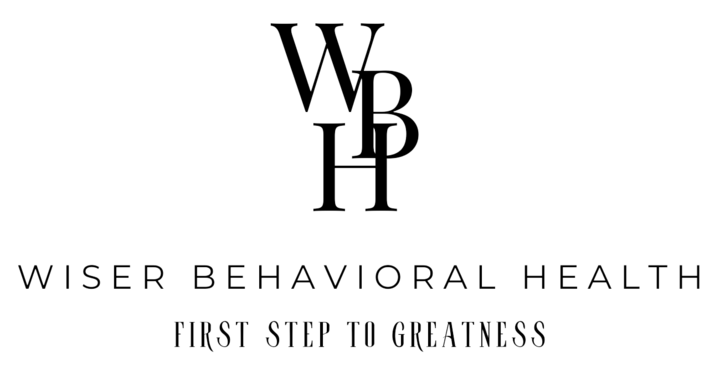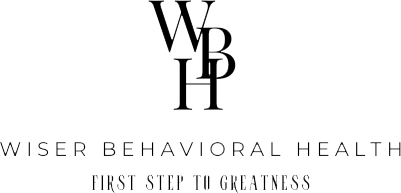At Wiser Behavioral Health, we understand that reaching out for help is a courageous first step—one that takes honesty, vulnerability, and trust. We’re here to assure you: you’re not alone, and effective mental health treatment in Nashville is within reach.
Whether this is your first step toward healing—or one of many—you’re in the right place.
The Mental Health Landscape in Nashville
Nashville’s Growing Need
Nashville’s population has swelled in recent years, but infrastructure and mental health services haven’t always kept pace. According to state public health reports, nearly 1 in 5 Tennesseans experiences a diagnosable mental health condition each year, with many individuals facing barriers to accessing effective care.
Barriers to Access
- Shortage of providers: Especially in underserved neighborhoods
- Insurance hurdles: High deductibles, limited mental health coverage
- Stigma: Fear of judgment or misunderstanding
- Lack of awareness: Not recognizing the need until a crisis occurs
These challenges make reliable and legitimate mental health treatment in Nashville essential. That’s where Wiser Behavioral Health steps in—to fill critical gaps with compassionate, high-quality care.
When It’s Time to Get Help
It’s not always easy to know when professional support is needed. Here are some signs that indicate it may be time to reach out:
- Persistent sadness or overwhelming anxiety
- Trouble concentrating at work or school
- Withdrawing from loved ones
- Changes in sleep, appetite, or weight
- Increased irritability, paranoia, or mood swings
- Thoughts of self-harm or hopelessness
- Struggling to cope with stress or trauma
- Substance use as a way to feel better
If any of these resonate, don’t wait—mental health conditions often worsen without treatment. Timely intervention improves outcomes, and mental health treatment in Nashville is here to support you.
Proven Approaches to Mental Health Treatment
Effective treatment begins with evidence-based strategies led by skilled clinicians. Here are the most effective approaches:
Therapy Modalities
- Cognitive Behavioral Therapy (CBT):
Teaches individuals to identify and challenge negative thinking patterns. Effective for anxiety, depression, postpartum disorders, and more. - Dialectical Behavior Therapy (DBT):
Designed for emotional regulation and building distress tolerance—especially helpful for self-harm, borderline traits, and severe mood instability. - Trauma-Focused Therapies (EMDR, TF-CBT):
Social, emotional, and somatic approaches to healing from adverse life experiences. - Motivational Interviewing:
Helps build intrinsic motivation to change behaviors, commonly used in addiction and ambivalence about change. - Mindfulness & ACT (Acceptance and Commitment Therapy):
Encourages present-moment awareness and acceptance of feelings—useful with anxiety, chronic stress, pain, and relapse prevention.
Medication Management
Psychiatric medication, prescribed by a psychiatrist or psychiatric nurse practitioner, can correct brain chemistry imbalances contributing to mental illness. Whether for depression, bipolar disorder, ADHD, or general anxiety, the right medication can help clients engage more fully in therapy.
Levels of Care
Weekly sessions for mild to moderate mental health concerns. Good for those who can maintain daily functioning and have a strong support system.
Outpatient therapy is the most common level of care for mental health treatment. It involves weekly sessions with a therapist or counselor, and is recommended for individuals with mild to moderate mental health concerns. Outpatient therapy is suitable for those who are able to maintain their daily functioning, such as going to work or school, and have a strong support system in place. This level of care provides clients with the flexibility to attend therapy while still being able to fulfill their responsibilities and commitments outside of treatment.
- Intensive Outpatient Program (IOP):
More frequent appointments—often multiple days per week, focusing on group skills, individual therapy, and psychiatric care.
The Intensive Outpatient Program (IOP) is a level of care that falls between traditional outpatient therapy and inpatient treatment. It offers more frequent appointments, often multiple days per week, allowing for a more intensive focus on recovery. This program typically includes group therapy sessions, individual therapy, and psychiatric care to address any underlying mental health issues. The intensity of this program allows clients to work through their challenges at a faster pace and receive the support they need to maintain their progress. Additionally, IOP allows individuals to continue with their daily routines such as work or school while still prioritizing their recovery. This combination of structure and flexibility makes IOP an effective option for those who require more support than
Whole-Person Treatment
Complementary services like:
- Nutritional guidance
- Movement and fitness therapy
- Art/music/recreational therapy
- Peer support and community building
In addition to traditional therapy and medical care, holistic elements are key components of comprehensive mental health treatment in Nashville. These services focus on treating the whole person, rather than just their symptoms. For example, nutritional guidance helps address any imbalances or deficiencies in the body that may contribute to mental health issues. Movement and fitness therapy can improve overall physical wellbeing, which is closely linked to mental health. Art, music, and recreational therapy provide means for self-expression and creative outlets for emotions. And peer support and community building create a sense of belonging and connection for individuals going through similar experiences. Together with traditional treatment methods, these holistic elements offer a more well-rounded approach to addressing mental health concerns in Nashville.
Wiser Behavioral Health’s Nashville Programs
At Wiser Behavioral Health, we’ve built our services on the foundation of compassion, evidence, and integration—making them some of the most effective mental health treatments in Nashville.
Personalized Assessments
Every client begins with a thorough psychosocial and psychiatric evaluation to understand their background, strengths, challenges, and goals. This informs a detailed, individualized treatment plan.
Expert Clinical Team
Our clinicians include:
- Licensed clinical social workers (LCSWs)
- Licensed mental health counselors (LMHCs)
- Psychiatrists and psychiatric nurse practitioners
- Co-occurring substance use specialists
- Peer recovery support staff
All staff are trauma-informed and culturally sensitive, allowing for respectful, effective care.
Full Continuum of Care
- Outpatient Therapy & Counseling – individual, family, and group therapy
- IOP & PHP – structured, multi-week or multi-day programs with intensive therapy and medication support
- Medication Management – on-site psychiatric evaluation and ongoing monitoring
- Telehealth Options – for flexible, secure sessions
- Post-Program Alumni & Aftercare – continued support, relapse prevention, and wellness check-ins
Dual Diagnosis & Specialty Groups
We treat mental health and substance use disorders together—recognized as the gold standard in recovery. Our programming includes:
- Trauma processing (EMDR)
- LGBTQ+ affirming therapy
- Adolescent and young adult services
- Veteran-specific support and case management
Choosing the Right Mental Health Treatment in Nashville
Consider These Key Factors
- Evidence-Based Approaches: Does the provider utilize recognized therapies like CBT, DBT, EMDR?
- Specialization & Experience: Do clinicians have experience in your specific concern—trauma, addiction, teen resilience?
- Level of Care: Does the center offer outpatient, IOP, PHP, or crisis stabilization as needed?
- Insurance & Affordability: Is your provider in-network? Are sliding scales or self-pay options available?
- Convenience: Is the location accessible? Are evening or telehealth sessions available?
- Cultural Fit: Does the practice embrace diversity, inclusivity, and trauma sensitivity?
Real Stories of Recovery
Sarah’s Transformation
Sarah, a graphic designer in her 30s, entered Wiser’s PHP after years battling depression and burnout. She found that a combination of group therapy, medication adjustments, and mindfulness work empowered her to set healthier boundaries, reconnect with loved ones, and return to work with strength and clarity.
After years of struggling with depression and burnout, Sarah, a graphic designer in her 30s, found herself at a breaking point. She knew she needed help and decided to enter Wiser’s Intensive Outpatient Program (IOP). At first, she was hesitant and unsure if it would make a difference. But as she began attending group therapy sessions, adjusting her medication, and practicing mindfulness techniques, Sarah started to notice significant changes in her life.
Through the support of the group therapy sessions, Sarah learned how to set healthier boundaries for herself. She had always been a people pleaser and often took on more than she could handle. But with the guidance of her therapist and peers in the program
Aaron’s Path to Healing
Aaron, a former construction worker, came seeking help after years of PTSD from a workplace injury and later self-medicating with alcohol. Over 12 weeks in our dual diagnosis IOP, he processed trauma via EMDR, built sober community in group sessions, and now volunteers as a peer mentor.
Aaron’s journey to healing began when he walked through the doors of our rehabilitation center. A former construction worker, he had been struggling with PTSD for years after a workplace injury. Feeling overwhelmed and unable to cope, Aaron turned to self-medicating with alcohol as a way to numb his pain. But as time went on, the alcohol only made things worse, causing strained relationships and difficulties at work.
Thankfully, Aaron found our dual diagnosis Intensive Outpatient Program (IOP) and immediately felt a sense of relief knowing that he was not alone in his struggle. Over the course of 12 weeks, he worked closely with our therapists and peers in group sessions to process his trauma using Eye Movement Desensitization and Reprocessing (EMDR) therapy.
Through this process, Aaron was able to identify the root cause of his PTSD and learn healthy coping mechanisms to manage his symptoms. He also formed strong bonds with others in the program, creating a support system that he could turn to during difficult times.
After completing our IOP, Aaron continued to attend our aftercare program and has since been able to maintain his sobriety and improve his mental well-being. He now serves as a mentor for new clients in our program, offering them hope and guidance on their own journey towards healing.
Aaron’s story is just one example of the power of dual diagnosis treatment in addressing both addiction and underlying
Maya’s Journey
Maya faced crippling anxiety about finishing grad school. Evening IOP sessions helped her build coping skills and connect with peers facing similar pressures. She graduated with renewed purpose and remains in outpatient counseling to support her transition to career life.
Maya had always been a high-achieving student, determined to succeed and make her family proud. However, as she approached the end of her graduate program, she found herself crippled with anxiety about finishing school and moving on to the next phase of her life. She struggled with overwhelming thoughts of failure and uncertainty about her future. It was then that she decided to seek help through our evening Intensive Outpatient Program (IOP).
Through the IOP sessions, Maya was able to work closely with our therapists and peers in group sessions to address her anxiety and learn effective coping skills. Being surrounded by others who were also facing similar pressures and challenges in their academic or career pursuits helped Maya feel less
Frequently Asked Questions (FAQs)
Q: How do I know if I should start with outpatient therapy, IOP, or PHP?
A: A detailed intake assessment, like ours, helps determine the level of care you need. Typically, outpatient is for mild-moderate concerns, IOP for those needing daily or near-daily support, and PHP for more elevated needs.
Q: Will my insurance cover treatment?
A: Wiser Behavioral Health partners with major insurers. We also offer self-pay options and sliding scales—our team assists with verifications, authorizations, and reducing financial stress.
Q: Can I get virtual care?
A: Yes. We offer HIPAA-compliant teletherapy and telepsychiatry for individuals who live outside Nashville or face mobility challenges.
Q: What if something comes up and I can’t attend scheduled sessions?
A: We understand life happens. We offer flexible scheduling and telehealth options to keep you on track. Communication with your therapist enables continuity of care.
Q: Do you involve families in treatment?
A: Absolutely. Family therapy and psychoeducation sessions are available to help strengthen support systems and improve outcomes.
Long-Term Wellness: What Comes After Treatment?
Aftercare and Alumni Program
Once formal treatment is completed, many centers silence. Not Wiser. We offer wrap-around aftercare, check-in calls, booster groups, and a vibrant alumni community for ongoing support.
Community & Peer Connections
We connect clients to:
- NAMI Tennessee
- AA/NA and other recovery fellowships
- Veteran support groups
- LGBTQ+ affirming groups
Building consistent community prevents isolation and binge relapse.
Self-Care Plans
We work side-by-side to help clients build routines that support mental health:
- Sleep hygiene strategies
- Balanced nutrition and gentle movement
- Daily mindfulness check-ins
- Digital detox guidelines
- Creative outlets like journaling and music
Resources in Nashville
Here are helpful local resources that complement formal therapy:
- NAMI Middle Tennessee: Support groups & education programs
- Metro Nashville Crisis Hotline (988): 24/7 crisis support
- Community Care Clinics: Low-cost psychiatric services
- YMCA Mind-Body Programs: Affordable classes and stress relief
- Music & Art Therapy Workshops: Nashville-specific offerings through local nonprofits10. Taking the Next Step
🔸 Step 1: Reach Out
Contact Wiser Behavioral Health today for an introductory call or to schedule an intake.
🔸 Step 2: Assessment
Meet with our team (in-person or virtual) for a comprehensive evaluation of your history, needs, and strengths.
🔸 Step 3: Personalized Treatment Plan
We’ll create your roadmap—selecting the best modalities, level of care, and pacing to support meaningful progress.
🔸 Step 4: Begin Treatment
Whether outpatient sessions or more intensive programming, your journey toward wellness begins here.
🔸 Step 5: Celebrate and Sustain
We’ll monitor your progress, adjust treatment as needed, and connect you to lifelong resources for sustained mental health.
Final Thoughts
Mental health treatment in Nashville isn’t one-size-fits-all. It should be personalized, evidence-based, accessible, and respectful. At Wiser Behavioral Health, that’s exactly what we provide.
If you or someone you care about is ready for compassionate, expert support, reach out to us today. Together, we’ll create a path to healing, growth, and lasting wellness. Give us a call at (615) 205-9473 or visit our website at www.wiserbehavioralhealth.com to learn more.




